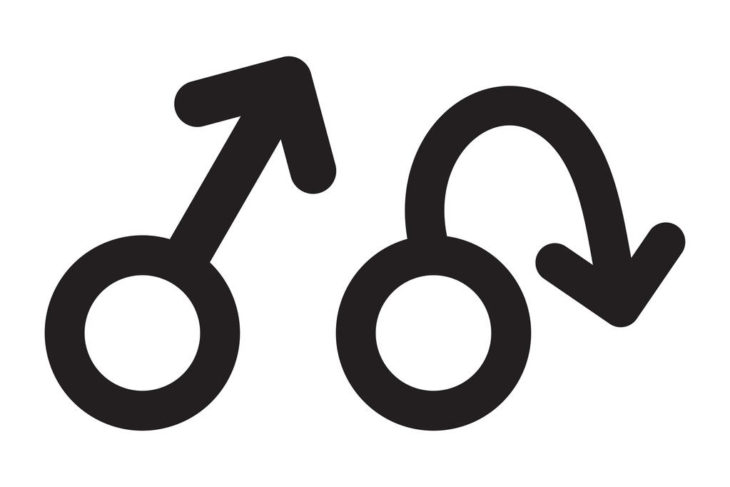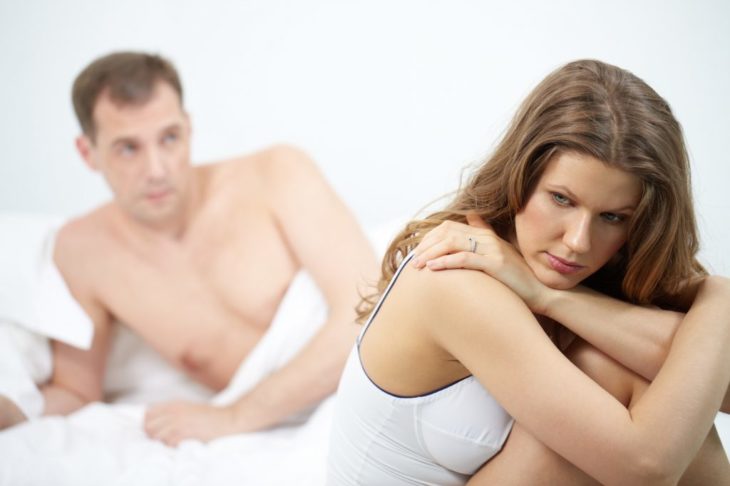If you’ve turned on a TV since 1998, you know how obsessed we are with hard-ons. Since the little blue pill appeared more than a dozen years ago, countless imitators of varying legitimacy and effectiveness have hit the market. Ads for drugs that promise to cure erectile dysfunction run nonstop during sporting events, and the sales of these medications generate hundreds of millions of dollars a year. We watch these ads and pop these pills without ever considering that the periodic inability to get an erection could be the best thing that could happen to our sex lives.
Losing my erections forced me to rethink my sexuality. It helped me make the vital shift from focusing on my own technique to focusing on sharing pleasure. I became a participant rather than a performer.
I’m not talking about men who have serious medical problems that make it impossible to get erections without pharmaceutical help. Of course, the drug companies wouldn’t be making much money if those were the only men consuming Cialis and Levitra. A growing percentage of those taking these anti-ED drugs are men under 30, a population in which medical impotence is rare. Performance anxiety is what’s driving most young men’s Viagra consumption. And they’ll never get to the root cause of that anxiety unless they overcome the source of that fear: the belief that an erection defines a man’s sexual power.

Source: Nutricioni
The first time I couldn’t get an erection, I was in bed with my high school girlfriend. We’d been dating for about three months and had been having sex for two. Michelle and I played hooky from school at least once a week, riding the bus to her empty house and spending a few hours in bed together. But this particular day, we were fighting (I have long since forgotten what the quarrel was about). For the first time, we tried having make-up sex. I was angry and confused and so was Michelle. We both wanted the soothing of sexual connection. But no matter what we did, it didn’t work: my penis stayed soft.
I was 17, near the peak of what is supposed to be teenage male horniness. I’d certainly never had this problem before, and I was confused—and quickly devastated. Michelle tried giving me a blowjob, but nothing happened. I tried masturbating myself, to no avail; the harder I tried, the softer it got. Michelle burst into tears, crying that I must not be attracted to her anymore. I felt incredibly ashamed, and ended up leaping out of bed, pulling on my clothes, and running down the street to catch the bus home. I couldn’t face her.
Similar incidents would bedevil me throughout the remainder of my teens and well into my 20s. To my tremendous frustration, I could never predict when I would suddenly be unable to get an erection. It happened with one-night stands, and it happened with women I’d been sleeping with for weeks and months. The “problem” would disappear for a long time, and then re-emerge with a vengeance. Unlike that first incident with Michelle, later bouts of impotence rarely had anything to do with a fight. More often, it was performance anxiety—I’d worry about getting an erection, and it became a self-fulfilling prophecy.
For many years, this anxiety made me fearful of too much foreplay. Once I had an erection, particularly with someone new I wanted to impress, I would try and rush to intercourse, scared of losing my hard-on. (The way it worked for me was that once I was inside a woman, I could always stay hard indefinitely. The dreaded problem always came before what one ex of mine liked to call “invagination.”) I wanted to be hard because I wanted so badly to perform. But as I eventually figured out, that anxiety made me a worse lover rather than a better one. Everyone likes a quickie now and again, but it gets awfully dull as the default.
Some women were understanding; some weren’t. One woman with whom I had a one-night stand said, after a prolonged amount of foreplay did not result in a “workable” hard-on, “Christ, I always knew you were a f**got.” Ouch. And other women became anxious, worrying that this was evidence I didn’t really want them. That only increased my desperation, making the problem worse.
But eventually, I figured out the lesson my body was trying to teach me. Contrary to what I’d grow up hearing, I figured out my penis is not a “tool,” a “drill,” a “rod” at my disposal. It’s part of my body and part of me, and it doesn’t perform on command. Thank goodness. ED left me feeling vulnerable and inadequate—and that’s exactly what I needed to feel in order to learn how to be a real partner to my lovers.

Source: kalburda
Like so many men, I didn’t question the dominant message about sexuality and the male body until I found myself falling woefully short of the standard. The fear, desperation, and shame associated with these periodic bouts of impotence was a gift. Even though I studied gender and sexuality in college, it took these on-again, off-again struggles with ED to get me to accept just how toxic and damaging the inflexible masculine idea really was.
ED made me much better in bed. Though from my earliest sexual experiences with other people, I’d known that there was more to sex than intercourse, I hit my early 20s still somehow convinced that penis-in-vagina sex was what really “counted.”
Losing my erections forced me to rethink my sexuality. It helped me make the vital shift from focusing on my own technique to focusing on sharing pleasure. I became a participant rather than a performer. Though I know that many of my partners did like intercourse, there’s no question that I learned to be a better and more present lover because of ED. And, predictably, as I learned to decenter the importance of intercourse, the erection problems gradually disappeared.
I don’t think there’s anything wrong with taking Viagra or similar drugs when it’s clear that there are purely medical reasons for erectile dysfunction. But before we pop the little blue pill to make ourselves hard, we need to question what’s so “dysfunctional” about not being able to perform on command. We need to question our obsession with heterosexual intercourse, and broaden our understanding of what sex can be. We need to let go of the need to be hard and in control all the time.
Sex is not an athletic competition. We are participants in the creation of mutual pleasure, not solitary performers on a track or in a ring. And for a lot of us, the only way to really learn that lesson is to lose the one thing we were taught was indispensable.
Original by Hugo Schwyzer
